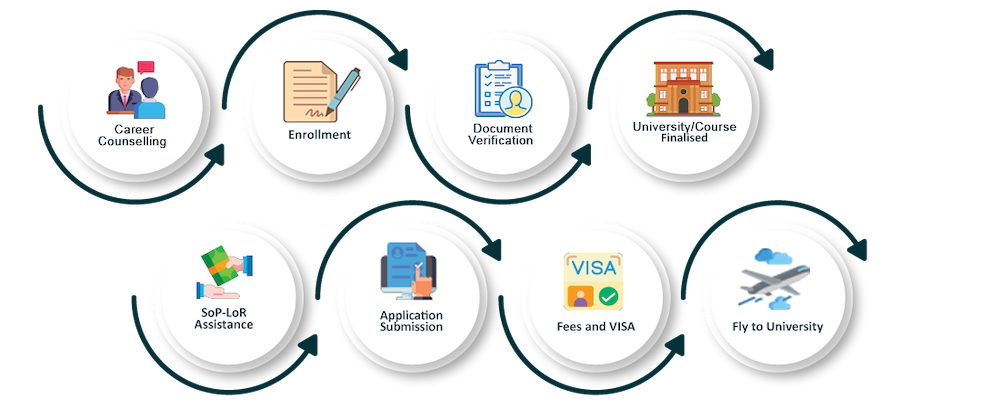The University of Auckland, which first opened its doors in 1883, is often regarded as the top university in New Zealand in terms of alumni employability. During the 1930s Great Depression, there was a surge in interest in academic study, and the University of Auckland saw significant academic growth. Several students started the literary newspaper Phoenix, which eventually became the focal point of New Zealand first literary movement. The University of Auckland offers courses at six separate campuses: City Campus, New market Campus, Epsom Campus, Grafton Campus, Tai Tokerau Campus, and South Auckland Campus. The main City campus of the University covers an area of 16 hectares. All campuses are well-equipped with the essential amenities, ensuring that students have a positive learning experience.
In the latter part of the 1960s, the University of Auckland constructed New Zealand's largest library. Every year, about 10,000 students graduate from the University of Auckland, which has over 40,000 students enrolled across five campuses. The institution also houses New Zealand's biggest research organisation, with over 13,000 workers and postgraduate students involved in basic and applied research. In addition, the University of Auckland received around $283 million in research money from the public and commercial sectors in 2018. According to the evaluation, it obtained 33% of the money based on the effective completion of research degrees. Furthermore, 36% of the funds come from earnings from outside research.
International students at the University of Auckland may apply for over 5000 scholarships. The University of Auckland has even established aid programmes for Indian students. As a consequence, Indian students beginning undergraduate and graduate studies at the University of Auckland in 2022 will be eligible for a 30% scholarship. Auckland University offers over 5000 scholarships to overseas students to help them in their studies. The Excellence Scholarship provides international students with up to $10,000 New Zealand dollars. Auckland University has one of the most incredible alumni networks in the world. Han Niu, a filmmaker based in Beijing who graduated from Auckland University with an MA in Screen Production in 2014 and is presently working on the screenplay for the feature film project The Manifesto, is one of the university's most successful graduates. Clorinda di Tommaso, the perfume brand manager, is another remarkable alumnus who received her BA in 2002 in Auckland before going on to acquire her Masters in Italian Cinema. The male-to-female ratio at the University of Auckland is 54:46, making it a gender-balanced institution. In fact, 360 of the University of Auckland's overseas programs have been nominated for the 2020 GoAbroad Innovation Awards in the diversity innovation category.
The Times Higher Education World University Rankings and the Academic Ranking of World Universities both rank the University of Auckland as one of the best colleges in the world. The university has kept these rankings for nearly ten years with very little change.

QS
68

THE
139

US News
123

World
372
| Course | Duration | Fee/Year |
|---|---|---|
| Bachelor of Advanced Science (Honours) - Computational Biology | 48 Months | NZD - 48,622 |
| Bachelor of Nursuing - Medical-surgical nursing | 48 Months | NZD - 48,622 |
| Bachelor of Health Sciences - Health Policy and Management | 48 Months | NZD - 48,622 |
| Bachelor of Commerce - Accounting | 48 Months | NZD - 48,622 |
| Bachelor of Arts - Academic English Studies and Linguistics | 36 Months | NZD - 38,250 |
| Bachelor of Engineering (Honours) - Computer Systems Engineering | 48 Months | NZD - 50,834 |
| Course | Duration | Fee/Year |
|---|---|---|
| Master of Biotechnology - Bioinformatics | 18-24 Months | NZD - 48,622 |
| Master of Data Science - Bioinformatics | 18-24 Months | NZD - 48,622 |
| Master of Information Technology - Bioinformatics | 18-24 Months | NZD - 48,622 |
| Master of Applied Finance - Financial Analytics | 24 Months | NZD - 49,497 |
| Master of Management - Accounting | 24 Months | NZD - 49,497 |
| Master of Business Analytics - Marketing | 24 Months | NZD - 49,497 |
| Master of Aerospace Engineering - Aerodynamics and Propulsion | 18 Months | NZD - 48,622 |
| Master of Engineering - Biomedical Engineering | 18 Months | NZD - 48,622 |
| Master of Robotics and Automation Engineering - Artificial Intelligence and Machine Learning | 18 Months | NZD - 48,622 |
| Master of Biomedical Science - Cancer Biology | 18 Months | NZD - 48,386 |
Applicants to universities in New Zealand are largely evaluated based on their prior academic performance, professional experience, letters of recommendation, and standardized test results. Students are chosen to study in New Zealand based on their grades, work experience, letters of recommendation, and standardized test results. Students applying from outside of New Zealand should get their materials in to the University of Auckland admissions office as far in advance as possible (ideally, four to five months).


If one looks at the ROI (average pay divided by average tuition), earning a graduate or postgraduate degree in New Zealand is not only financially feasible but also very lucrative. New Zealand has a higher cost of living than India (197.2% more, not counting rent; rent in India is 460.67% cheaper than in New Zealand), but students can get by with cheap tuition, many on-campus jobs, and generous scholarship programs.
Professionals in the financial sector earn an average of $125,000 a year, making them the best-paid in Auckland. The lowest average salary in Auckland is $26,000 per year for people who work in logistics, operations, and buying. ANZ Group, with a median compensation of $105,000, is the top-paid firm in Auckland. ANZ Group, Vodafone, BNZ, and EY are among the top employers at the University of Auckland.
| Course | Annual Package |
|---|---|
| Financial Services | $125,000 |
| IT & Software Development | $64,000 |
| Finance Control & Strategy | $58,000 |
| Compliance, AML, KYC & Monitoring | $56,000 |
| Engineering | $55,000 |
| Marketing, Product & Communications | $53,000 |
No. It is not required to submit SAT results, but having strong scores may offer you an advantage over other candidates.
Respondents The University of Auckland has designed a number of specialized courses for overseas students who do not have the necessary command of English to get admitted. The English Pathway for Undergraduate Studies, the English Pathway for Postgraduate Studies, and the Foundation Certificate in English for Academic Purposes are all examples of these specialized courses.
At the University of Auckland, there are scholarships and other forms of financial aid, each of which has different requirements. Financial instability and suffering are also taken into account by several scholarship programs. Scholarships are also available for study in the home nations.
Nga Wharenho is an accommodation option for students at the University of Auckland, and it can accommodate up to 4,400 people. A student may apply for housing and pay associated costs online.
Students at this school are permitted to hold down part-time jobs. Long-term permit holders who have been studying in the country for more than a year are allowed to work a maximum of 20 hours per week while they are enrolled in school. International students can look for internships and jobs at the school's Student Job Search office. It is the responsibility of students receiving a scholarship to determine how much money they may make working part-time without losing their financial aid.
Your odds of getting into college are proportional to the quality of your application, the total number of students who apply each year, and the number of available spots in the major. Given the above, it is reasonable to assume that the percentage of foreign students at a given institution is a good indicator of the percentage of international applicants the university accepts. In all, there are almost 8,000 foreign students from 130 different nations at the institution.
More than NZD 15 million was given out in scholarships to overseas students at the University of Auckland this year. Because the university works with private foundations and public organizations, it can offer scholarships to students from other countries.
As the University of Auckland has strict application deadlines for each degree program, prospective overseas students are encouraged to submit their materials as soon as feasible to allow for visa processing. If you miss the application deadline but otherwise meet the requirements for the program, your application may still be considered. Deadlines for undergraduate programs may be found anywhere from early October to late December. Deadlines for post-graduate study might be different for early, mid, and late-year starts of master's degrees. Except for the Doctor of Clinical Psychology and the Doctor of Education, applications for doctoral programs have no deadlines and may be filed at any time during the year.